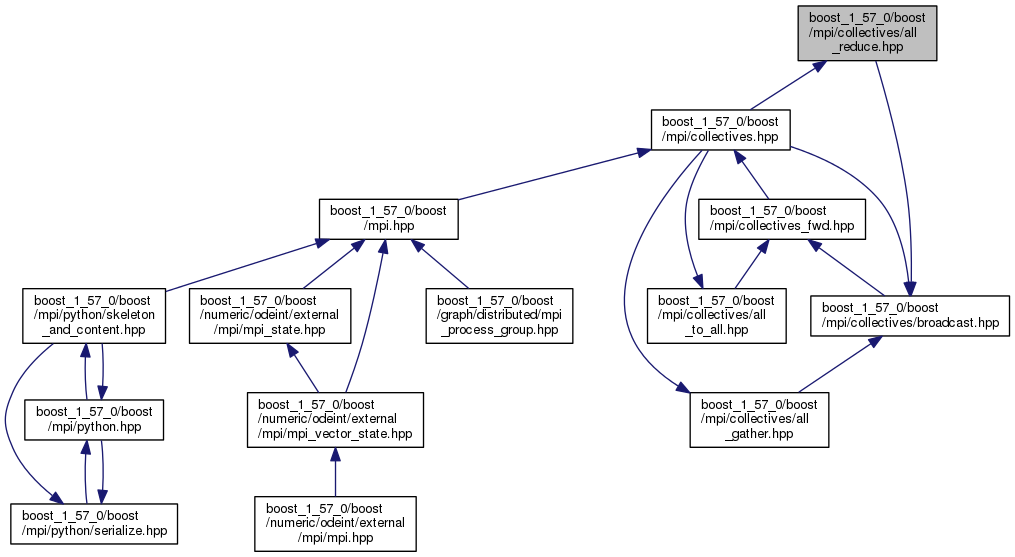|
| template<typename T , typename Op > |
| void | boost::mpi::detail::all_reduce_impl (const communicator &comm, const T *in_values, int n, T *out_values, Op, mpl::true_, mpl::true_) |
| |
| template<typename T , typename Op > |
| void | boost::mpi::detail::all_reduce_impl (const communicator &comm, const T *in_values, int n, T *out_values, Op op, mpl::false_, mpl::true_) |
| |
| template<typename T , typename Op > |
| void | boost::mpi::detail::all_reduce_impl (const communicator &comm, const T *in_values, int n, T *out_values, Op op, mpl::false_, mpl::false_) |
| |
| template<typename T , typename Op > |
| void | boost::mpi::all_reduce (const communicator &comm, const T *value, int n, T *out_value, Op op) |
| | Combine the values stored by each process into a single value available to all processes. More...
|
| |
| template<typename T , typename Op > |
| void | boost::mpi::all_reduce (const communicator &comm, inplace_t< T * > value, int n, Op op) |
| | This is an overloaded member function, provided for convenience. It differs from the above function only in what argument(s) it accepts. More...
|
| |
| template<typename T , typename Op > |
| void | boost::mpi::all_reduce (const communicator &comm, inplace_t< T > value, Op op) |
| | This is an overloaded member function, provided for convenience. It differs from the above function only in what argument(s) it accepts. More...
|
| |
| template<typename T , typename Op > |
| void | boost::mpi::all_reduce (const communicator &comm, const T &value, T &out_value, Op op) |
| | This is an overloaded member function, provided for convenience. It differs from the above function only in what argument(s) it accepts. More...
|
| |
| template<typename T , typename Op > |
| T | boost::mpi::all_reduce (const communicator &comm, const T &value, Op op) |
| | This is an overloaded member function, provided for convenience. It differs from the above function only in what argument(s) it accepts. More...
|
| |

